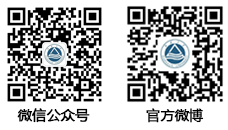应用语言学课程教学大纲
课程名称:应用语言学
英文名称:Applied Linguistics
总学时:32 理论学时: 实验学时:32 总学分:2
教学目的:
通过课堂讲授、课内讨论等方式让学生对应用语言学的跨学科性质和研究问题形成比较清楚的认识,掌握应用语言学的基本概念、理论、研究方法、已有研究成果和前沿问题。本课程要求学生阅读参考书目、参加课堂讨论并写出课程论文。
课程内容、教学方式、教学要求及学时分配:
Contents:
1. Introduction (Lecture: 3hrs)
A brief history
The nature of applied linguistics
The scope of applied linguistics
The role of applied linguistics
Applied linguistics and language researchers
2. Theoretical bases (Lecture: 3 hrs)
Introduction
Philosophical bases
Linguistic bases
Psychological bases
Sociological bases
3. Major techniques and methods (Lecture: 3hrs)
Introduction
Qualitative research methods
Quantitative research methods
4. First language acquisition (Lecture: 3hrs)
Introduction
Some questions that L1 theories must answer
Behaviouristic theories
Cognitive theories
5. Second language acquisition (1): Linguistic theories and
Introduction
Behaviourism
The“Chomskyan Revolution”
5.4 The “Neo-cognitive Revolution”
6. Second Language Acquisition (2): Learner factors in
Introduction
Age
Known language(s)
Learning aptitude
Motivation
Affect
6.6 Learning style and learning strategies
7. Second Language Acquisition (3): Environmental factors in
Introduction
7.2 Input
7.3 Instruction and
8. Language Planning and sociolinguistics (Lecture:3hrs)
Language planning
Sociolinguistics
9. Project work: Design of a primary study (Discussion:3hrs)
10. Computational linguistics (Lecture: 3hrs)
10.1 Introduction
10.2 Computational phonology
10.3 Computational approaches to lexicon
10.4 Computational syntax
10.5 Computational semantics
11. Future research in applied linguistics (Discussion: 2hrs)
12. Preparation for term paper
Assessment
1. A term paper
2. Regular attendance and active participation in discussions
Attendance and Participation
Class participation consists of (1) regular attendance, (2) participation in discussions, (3) critiquing of articles, and (4) sharing research articles.
适用专业:英语语言文学
先修课程:普通语言学
教 材:
[1] Cook,G. & B. Seidlhofer (eds.). 1995. Principles & Practice in Applied Linguistics.
[2] 于根元,2003,《应用语言学概论》,北京:商务印书馆。
[3] 乐眉云,2004, 《应用语言学》。南京:南京师范大学出版社。
参 考 书:
[4] Archard, M. & N. Susanne. 2004. Cognitive linguistics, second language acquisition, and foreign language teaching.
[5] Archibald, J. 2000. Second Language Acquisition and Linguistic Theory.
[6]
[7] Coulmas, F. 2001. Handbook and Sociolinguistics.
[8] Doughty, C.J. & Long, M.H. 2003. (eds.) The handbook of second language acquisition.
[9] Ellis, R.1985. Understanding Second Language Acquisition.
[10] Ellis, R. 1994. The study of second language acquisition.
[11]Gass, S. & Selinker, L. 2001. Second language acquisition: an introductory course.
[12]Gass, S. & Schachter, J. 1989. Linguistic perspectives on second language acquisition.
[13]Ritchie, W.C. & Bhatia, J.K. 1996. Handbook of second language acquisition.
[14]Robinson, P (ed). 2001. Cognition and second language instruction.
[15]Wray, A., et al. (2001). Projects in Linguistics: A Practical Guide to Researching Language.
Journals:
Applied Linguistics
ELT Journal
Language Learning
TESOL Quarterly
Studies in Second Language Acquisition
考核方式:出勤及课堂讨论,课程论文
考试权重:出勤及课堂讨论30%,课程论文70 %
大纲撰写人:顾琦一

